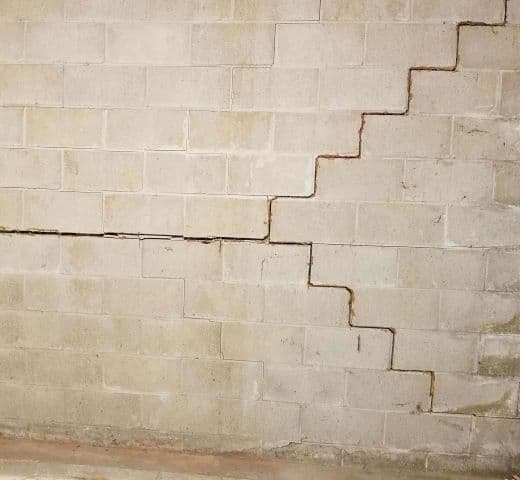Unveiling the Efficacy of Spray Foam in Waterproofing Toronto Basements
The notion of a dry and waterproof basement is paramount, particularly in a city like Toronto, where variable weather patterns and heavy precipitation are the norm. As homeowners in Toronto seek practical solutions for basement waterproofing, one method that has garnered considerable attention is spray foam insulation. This article embarks on an in-depth exploration of the question: Can spray foam truly waterproof a basement? We focus on the Toronto basement waterproofing landscape while examining the advantages, limitations, and alternatives.
Decoding Basement Waterproofing
Basement waterproofing is a specialized process aimed at safeguarding structures from water intrusion into the basement, a common concern in a metropolis like Toronto that faces challenges from heavy rains and snowmelt. Implementing a sound waterproofing strategy is indispensable for upholding a home’s structural integrity, preventing mold growth, and maintaining an environment conducive to healthy living.
The Role of Spray Foam Insulation
Spray insulation has become a popular choice for insulating various parts of homes, including basements. This method involves spraying a combination of chemicals that rapidly expand into a foam-like consistency, effectively filling voids and fissures thereby preventing air leakage. Given its expansive nature, it’s plausible to consider spray foam as a potential solution for basement waterproofing. Nonetheless, it’s imperative to grasp its benefits and limitations to make an informed decision, especially when contemplating its exclusive use for Toronto basement waterproofing.
Advantages of Spray Foam Insulation for Waterproofing
- Seamless Barrier: Spray foam insulation is lauded for its ability to form an airtight and seamless barrier, sealing gaps, cracks, and joints that may serve as avenues for water infiltration.
- Thermal Insulation: Beyond its waterproofing attributes, spray foam offers thermal insulation, contributing to energy efficiency and potentially lowering utility bills.
- Moisture Management: Closed-cell spray foam, in particular, demonstrates resistance to water due to its compact cellular structure, diminishing the likelihood of moisture absorption compared to other materials.
- Adaptability: The versatility of spray foam enables it to adhere seamlessly to various surfaces, ensuring comprehensive coverage and adapting to the distinctive contours of basement walls.
Limitations of Spray Foam Insulation for Waterproofing
- Cost Implications: The expense of spray foam insulation, especially closed-cell foam, could pose a financial challenge for homeowners seeking to waterproof larger basement areas.
- Application Complexity: Skill and expertise are prerequisites for accurate spray foam application. A proper installation can result in the formation of air pockets, inadequate coverage, and compromised waterproofing effectiveness.
- Non-Guaranteed Solution: While spray foam can effectively manage moderate moisture, it might not be an infallible solution against substantial water penetration or flooding.
- Vulnerability to Damage: Spray foam’s susceptibility to physical damage or impact can undermine its role as a reliable waterproofing method.
Exploring Alternatives to Spray Foam
- Exterior Waterproofing: This approach entails excavation around the foundation perimeter and applying waterproofing materials to the exterior walls. This provides a robust defense against water infiltration.
- Interior Drainage Systems: Incorporating interior drainage systems such as French drains or sump pumps can redirect water away from the basement and efficiently manage moisture.
- Waterproofing Membranes: Applying waterproofing membranes to the interior walls creates a protective barrier against water intrusion, fostering a dry indoor environment.
- Epoxy Injection: Utilizing epoxy injections to seal foundation wall cracks prevents water seepage through these susceptible points.
Choosing the Right Waterproofing Strategy in Toronto
Given Toronto’s distinct climate and soil characteristics, selecting an appropriate basement waterproofing strategy is imperative. The city’s frequent heavy rainfall and temperature fluctuations necessitate a comprehensive approach encompassing various considerations. Although spray foam insulation can be pivotal, combining it with other methods ensures complete protection.
Leveraging Professional Expertise
To make an informed choice regarding basement waterproofing, it’s advisable to collaborate with established waterproofing contractors in Toronto. These professionals possess the knowledge to evaluate your basement’s requirements and devise a tailored solution that effectively addresses vulnerabilities.
The Role of Spray Foam Insulation: Beyond Insulation, a Potential Guardian against Basement Moisture
Spray foam insulation, hailed for its ability to create an impenetrable thermal barrier, extends its prowess beyond mere insulation, emerging as a potential guardian against the insidious threat of basement moisture. In the intricate dance between weather and construction, spray foam takes on a multifaceted role that resonates with homeowners in Toronto seeking effective waterproofing solutions. Its distinctive expansion property allows it to conquer gaps, crevices, and joints that often serve as the gateway for unwelcome moisture. By forming a seamless and airtight seal, spray foam is instrumental in fighting against dampness that could compromise a basement’s structural integrity.
Embracing spray foam for basement waterproofing promises a comprehensive defense mechanism. Its thermal insulation capabilities, in tandem with its sealing attributes, create a comfortable indoor environment and act as a deterrent against moisture infiltration. While spray foam’s primary role may be rooted in energy efficiency, its secondary role as a moisture barrier makes it an appealing contender in the arsenal of Toronto homeowners battling the persistent challenges of a damp climate.
| Aspect | Pros | Cons |
|---|---|---|
| Sealing Capability | Effective at sealing gaps, cracks, and joints. | Inadequate application can lead to air pockets. |
| Thermal Insulation | Provides additional thermal insulation. | It can be expensive, especially for larger areas. |
| Moisture Resistance | Closed-cell foam repels water to some extent. | Might not be sufficient against heavy flooding. |
| Versatility | Adapts to various surfaces and contours. | Requires skilled application for optimal results. |
| Energy Efficiency | Reduces heat loss and lowers energy bills. | Vulnerable to physical damage. |
Conclusion
To waterproof a basement in Toronto requires careful consideration of the available options. While spray foam insulation boasts advantages such as gap-sealing and insulation benefits, there might be other answers to achieving a waterproof basement, particularly in a climate as unique as Toronto’s. A holistic strategy that factors in external conditions, financial constraints, and the guidance of waterproofing experts is essential. By comprehending the merits and limitations of spray foam insulation and exploring alternative approaches, Toronto homeowners can make informed decisions to ensure their basements remain dry, secure, and resilient.
FAQs
1. Does spray foam guarantee a waterproof basement?
Spray foam helps seal gaps and repel moisture but might not be fully waterproof against heavy water or flooding. A comprehensive approach is recommended.
2. What are alternatives to spray foam for waterproofing?
Alternatives include exterior waterproofing, interior drainage systems, waterproofing membranes, and epoxy injections tailored to specific needs.
3. How to ensure effective basement waterproofing in Toronto?
Combine methods like spray foam with others, consult professionals, and choose solutions based on your basement’s needs and Toronto’s climate.













































